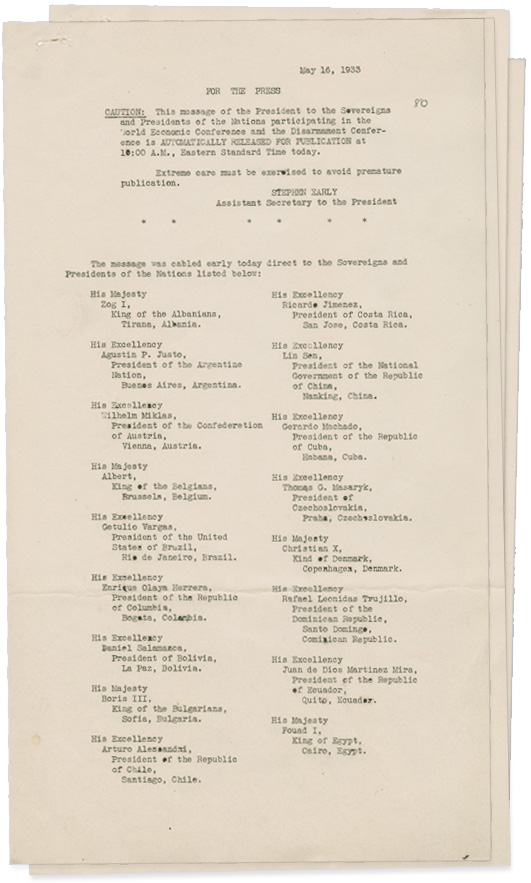 Visualització del contingut web
Visualització del contingut web
Message of President Roosevelt to the Congress, May 16, 1933 concerning the up-coming Disarmament and Economic Conferences
In May 1933, just two months into office, President Roosevelt took the initiative of directly contacting the leaders of countries that were scheduled to participate in two up-coming economic and disarmament conferences. He asserted the need for cooperation and action to solve these complex and intermingled issues.
Still stinging from the horrifying experience of the First World War, nations around the world recognized that the pre-war policies of uncontrolled competition in arms buildup, and international mistrust and suspicion had played a part in unleashing the mechanism of war. Roosevelt saw these conferences as a way to lay the foundation for increased international cooperation and a lessening of tensions among nations.
Below is a press release issued by the White House on May 16, 1933 to announce that the President had sent his message to heads of state accross the world. FDR's message is included, too:
 Visualització del contingut web
Visualització del contingut web
Below are some questions to consider and discuss after reviewing the President’s May 16, 1933 Message to the Congress.
- FDR calls on the nations of the world to take four steps towards disarmament. What are the four steps?
- While the President’s statement was sent to 54 countries, to whom do you think it was most likely directed, and why?
- Just how realistic is the course of action FDR is advocating? What are the advantages in taking the action FDR is proposing? What are the disadvantages?
- What reasons does FDR cite for nations arming themselves so heavily in the first place? Can you think of any other reasons?
- FDR makes the case that economic problems and military armaments go hand in hand. How persuasive do you find this argument to be?
- Compare this message to others given by President Roosevelt throughout his presidency regarding armaments and peace among nations. How consistent are Roosevelt’s views on these matters?




